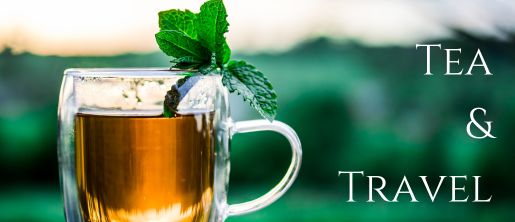
Tea is one of the most popular beverages in the world, enjoyed by millions of people every day. From the bustling streets of India to the tranquil tea ceremonies of Japan, tea is a symbol of hospitality, friendship and culture. At Premier’s Tea, we believe that drinking tea is not just about the beverage itself, but the experience of sharing it with others and exploring different cultures.
In this blog post, we’ll take you on a journey around the world, exploring the unique tea cultures that we’ve discovered along the way. Whether you’re a seasoned traveller or an armchair explorer, we hope that this post inspires you to sip your way around the world with Premier’s Tea.
India: Let’s start our journey in India, where tea is an integral part of daily life. India is the world’s second-largest tea producer, and its tea gardens are spread across the country’s various regions, each with its unique flavours and aromas. Assam Tea is known for its strong, malty black tea, while Darjeeling, in the foothills of the Himalayas, produces a delicate and floral tea that is revered across the world. Other regions, such as the Nilgiri hills in the south, produce a fragrant and fruity tea that is popular both in India and around the world. But tea in India is not just about the tea gardens – it’s also a social experience. The country’s famous chai tea is often enjoyed in small clay cups at roadside tea stalls, where it’s shared with friends and strangers alike. Drinking chai is not just about the beverage itself but the sense of community and hospitality that comes with it.
Japan: From India, we’ll travel to Japan, where tea has a long history and is an important part of Japanese culture. The Japanese tea ceremony, also known as Chanoyu, is a highly ritualized and formal event that dates back to the 16th century. Matcha, a powdered green tea, is used in the ceremony and is prepared in a specific way to create a frothy, creamy texture. The tea ceremony is a symbol of harmony, respect, and tranquillity, and is often performed in traditional tea rooms.
China: Next, we’ll visit China, where tea has been enjoyed for thousands of years. China is home to many different types of tea, including green tea, oolong tea, and pu-erh tea. In some regions, such as the Sichuan province, tea is often served with savoury snacks and dim sum. Tea is an integral part of Chinese culture and is often used in traditional Chinese medicine.
Morocco: Our next stop is Morocco, where tea is a central part of hospitality and is often served to guests as a sign of welcome. Moroccan tea is a sweetened green tea that is flavoured with mint leaves and is poured from a height into small glasses to create a frothy head. It’s often served with traditional Moroccan pastries and is a symbol of hospitality and friendship.
England: Finally, we’ll head to England, where tea is an important part of British culture. Afternoon tea is a tradition that dates back to the 19th century and typically includes tea, sandwiches, scones, and sweets. It’s often enjoyed in elegant tea rooms or hotels. The British take their tea very seriously, and there are specific etiquette rules that should be followed when enjoying afternoon tea.
At Premier’s Tea, we believe that tea is not just a beverage, but a symbol of culture, hospitality, and friendship. Whether you’re exploring the bustling streets of India or enjoying a serene tea ceremony in Japan, there’s a cup of tea waiting for you. So why not sip your way around the world with Premier’s Tea and experience the unique tea cultures that the world has to offer?

